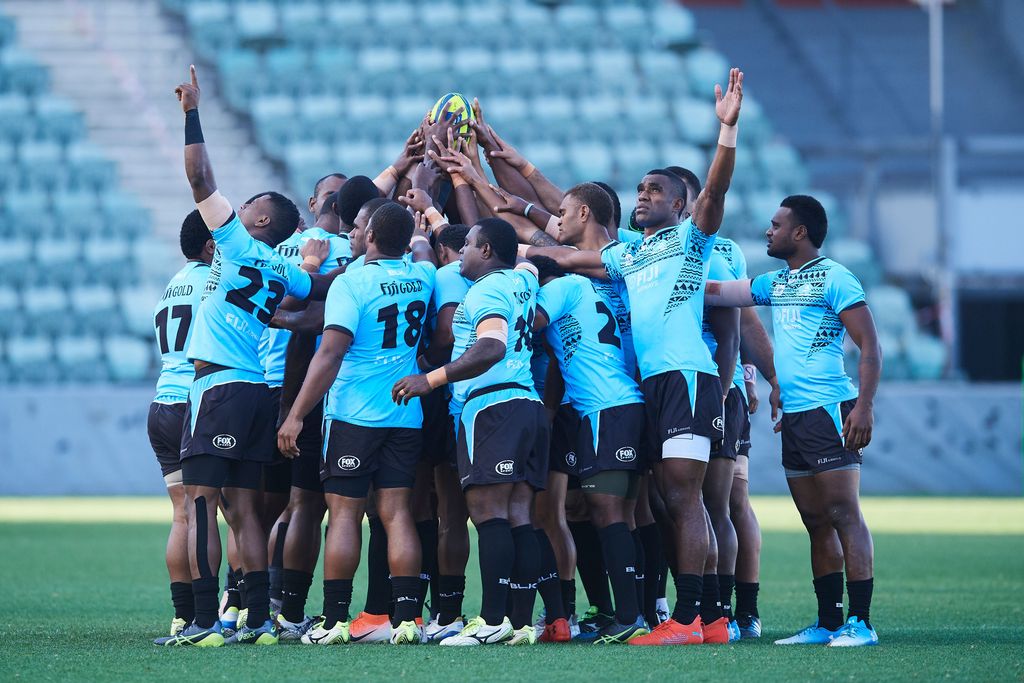Plans to create two Super Rugby franchises in the Pacific Islands could provide the “missing element” that allows Fiji, Samoa and Tonga to retain the region’s best and brightest talent.
On Wednesday, World Rugby confirmed a financial and administrative package to support two new Super Rugby teams, the Fijian Drua and Moana Pasifika, from 2022.
The franchises, who will also be supported by their respective unions and private equity, will need to satisfy the financial criteria for entry to the competition, however, the development has been greeted with excitement by those involved.
Pacific Islanders make up around a quarter of all professional rugby players globally, yet those opportunities have until now been located overseas.
“It’s the next step on our evolution,” Fiji Rugby High Performance Manager, Simon Raiwalui said.
“One of the biggest things is creating the opportunities for those players to be based in Fiji and earn a living, and be on that path with Fiji Rugby to long-term success.”
Seamless pathway
Retaining talent in the region and creating a clear pathway from grassroots to the test arena has been a key objective for World Rugby, and Chairman Bill Beaumont, since its Rugby Committee met in Suva in 2016.
The Pacific Island Working Group was subsequently set up and has helped launch a series of initiatives designed to raise standards in the Pacific Islands.
“The biggest missing element of a pathway for the islands has always been a professional team and a professional competition where they can control the development and growth of their players,” World Rugby General Manager, High Performance Peter Horne said.
“By creating a Super Rugby franchise within the Pacific Islands for Fiji, Samoa and Tonga, it enables those unions to retain its players and gives connectivity back to the local domestic competition. So, there’s actually a seamless pathway.
“The gap between local competition and international test rugby is quite great, so there are stepping stones for a budding player that’s maybe 16 now and has an aspiration to play for the Manu Samoa or the Flying Fijians or the ‘Ikale Tahi.
“He has got something that he can see as a stepping stone without having to leave, potentially into Europe, to grow and develop as an international player.
“[That player] can stay closer to home, participate in one of the best competitions in the world and ultimately build and grow to ensure the strength of their national programmes.”
It is hoped that providing opportunities for players to remain in the Pacific Islands will have a positive knock-on effect on the national teams in Fiji, Samoa and Tonga.
Having a larger pool of elite players in the region will, in theory, give the unions greater access to its talent and allow for longer training camps ahead of test matches and tournaments.
“By having a Super Rugby franchise we actually aggregate the best talent, keep it close to home, develop combinations that are locally developed,” Horne said.
“Those combinations can stick together over a professional competition and obviously be selected for a national team.
A potential historic transformation of Pacific Islands rugby has been advanced with World Rugby confirming a package of financial and administrative support to help facilitate two teams joining Super Rugby from 2022.
— World Rugby (@WorldRugby) March 24, 2021
“That gives cohesion to teams, an ability for coaches to have genuine contact time regularly with their players instead of having to track players overseas.”
Rugby World Cup aspirations
Raiwalui would certainly welcome a future in which the bulk of the Flying Fijians squad is made up of locally-based players.
“The opportunity to bring our best players back to Fiji to be involved in a team that is based out of Fiji, train together for the year and work towards playing together in a Super Rugby competition is only going to add to our test programme,” he said.
“One of the biggest hindrances or hurdles for us is always bringing a team together. We’ve got over 50 per cent of our players based in the northern hemisphere.
“We’ve got players based in Japan, Australia, New Zealand, even MLR (Major League Rugby), and bringing them together for a test series is obviously very difficult. And, with the limited time to prepare for a test series it is very hard to work through that.
“So, the opportunity to work through the year, train together, play as a Drua team and then work into a test series would be a huge step up for us.”
It is a step that all involved hope will lead to improved results on the pitch and the return of a Pacific Island nation to the quarter-finals of Rugby World Cup.
“One of our major strategies is to improve the competitiveness of the international game, and to do that we need to have competitive Rugby World Cups,” Horne said.
“The whole idea is that by creating more competitive Pacific Islands we’ll have a better result with Fiji, Samoa and Tonga at Rugby World Cup.
“They’ve got aspirations. Fiji would like to go to the [Rugby World Cup] quarter-final and beyond in 2023, and so do the other two unions.”





